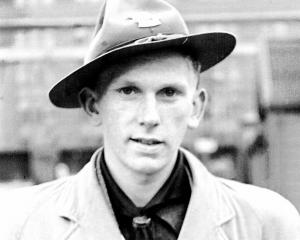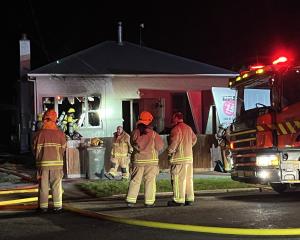Miss Taylor is retiring from East Otago Health 52 years after beginning work at its predecessor, the Palmerston Cottage Hospital, in 1959.
Both her role and the role of the present-day health centre had changed over the years, she said. The patients were the reason she had stayed in the job.
In earlier years, she had often dealt with several generations of families who lived in the area. People were more mobile now and the population had changed a lot. However, people were still good to deal with, she said.
Miss Taylor was appointed as a nurse aide at the Palmerston Cottage Hospital in 1959.
Anyone who thought modern hospital staffing levels were lean and mean should have been at that hospital in 1959. It was run by a matron and one nurse aide, Miss Taylor said. There could be up to six patients, most of them maternity. The hospital had its own gardener and a cook who prepared all the meals.
Miss Taylor completed her general nursing training at Oamaru Hospital in 1964 and worked there for 18 months before going to Britain for her OE for four and a-half years.
Working with an agency in Kent, she undertook private nursing and some hospital nursing. Most of her work was in London but she also worked in Edinburgh and other cities. Miss Taylor trained as a midwife in London and visited clients in London suburbs on her bicycle.
Miss Taylor returned to New Zealand in 1970 and became one of the first practice nurses after the government decided general practices should include this role. She worked with Dr Eric Clapham at his practice in Palmerston and in Waikouaiti.
The Palmerston cottage hospital had closed and two local doctors combined their practices and set up a health centre in the former hospital building. Another health centre was run at Waikouaiti, where Miss Taylor also worked on occasions.
She did not consider undertaking midwifery work in East Otago, as she would have had to retrain to update her UK qualifications, she said.
In recent years, Miss Taylor has managed the financial affairs of the practice, ordered stock and kept tabs on equipment and supplies. She has also looked after the many medical students who undertook part of their training at East Otago Health.
She has seen many changes during her nursing career, from boiling instruments and deciphering doctors' handwriting to embracing an automatic autoclave and tackling computer technology. She has found dealing with computer programs to be the hardest part of her present-day work.
Miss Taylor is not retiring completely. Her smiling face will still be seen at East Otago Health as she continues doing administrative work there one day a week.












